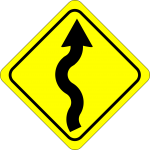Will Quitting Alcohol Really Change Your Eating? by Joan Kent, PhD
A conversation in a fitness club locker room between a woman and her husband’s personal trainer caught my attention. No, I wasn’t eavesdropping: they were standing right next to me and conversing at ordinary volume.
The trainer explained to the wife that her husband’s weight problem was probably due to his alcohol consumption. She had checked his food logs and said, “He doesn’t seem to be attached to sugar or other carbs.”
The trainer obviously had some knowledge of the addictive properties of sugar and other carbs, which is great. But what if the husband were to quit alcohol?
If he was consuming quite a bit of alcohol (or drinking moderately but frequently), it might be more difficult for him to quit than the trainer realized.
And What If He Did Stop Drinking?
One noticeable effect would probably be cravings – for alcohol, or possibly for sugar, which stimulates a substantially similar brain chemical cascade.
Sugar substitution for alcohol can be seen at AA meetings everywhere. Cookies, pastries, donuts, and brownies are typical back-of-room treats. Sugar is generally regarded as the lesser of the two evils.
The problem with eating sugar is that it’s a psychoactive drug that affects brain chemistry. The effect could be just like having a small amount of wine or other alcohol – a little could make someone want more. So a little sugar could lead to a lot of sugar.
Even worse, if someone is going through withdrawal from alcohol, a small amount of sugar could trigger the brain chemical effect sugar shares with alcohol just enough to “prime” the desire for alcohol. No one trying to quit alcohol needs or wants that.
Okay, You Ignore Sugar. What Happens Then?
Let’s say the husband doesn’t give in to either his alcohol or his sugar cravings. What might he crave instead?
Starches – bread, pasta, potatoes, rice and more – might become his go-to substitutes – especially if they’re paired with saturated fats like butter.
The combination of, say, bread and butter (or potatoes and butter) can put someone in a “serotonin coma” just as well as sugar can. That serotonin coma is often what someone is seeking when driven to a comfort food or junk food binge.
Compared to sugar, starches may seem like the lesser of the two evils. But some people (called carbohydrate sensitive) release extra insulin when they eat starches.
Also, combining starch with saturated fat like butter raises insulin secretion extremely high. High insulin can increase chemicals and hormones (like series 2 prostaglandins) that trigger inflammation. Inflammation is considered the root cause of most – if not all – disease.
What’s the Best Food Solution?
Don’t get the wrong impression. I’m NOT suggesting that you keep drinking alcohol to avoid food cravings. Quitting alcohol may bring many health benefits, especially long-term.
And yes, I did have a client who wanted to keep drinking to prevent sugar cravings. Yikes.
If you’ve been drinking a lot of alcohol, seek professional supervision. Stopping abruptly without that help can cause a variety of problems.
Food Tips When Quitting
- Be sure to eat protein with anything you consume – food or beverage.
- Eat healthful fats with each meal or snack: raw nuts, coconut oil, avocados, avocado or macadamia oil, hemp oil.
- To handle cravings for alcohol or sugar in the long run, look into changing your diet. The right food changes can help you eliminate cravings altogether.
If you’d like to get rid of food cravings permanently, perfect. That’s what I do, and I’d love to help. Just visit www.LastResortNutrition.com and request your free Empowered Eating Consult. Discover how easy it is to get free from cravings. You can do this!



